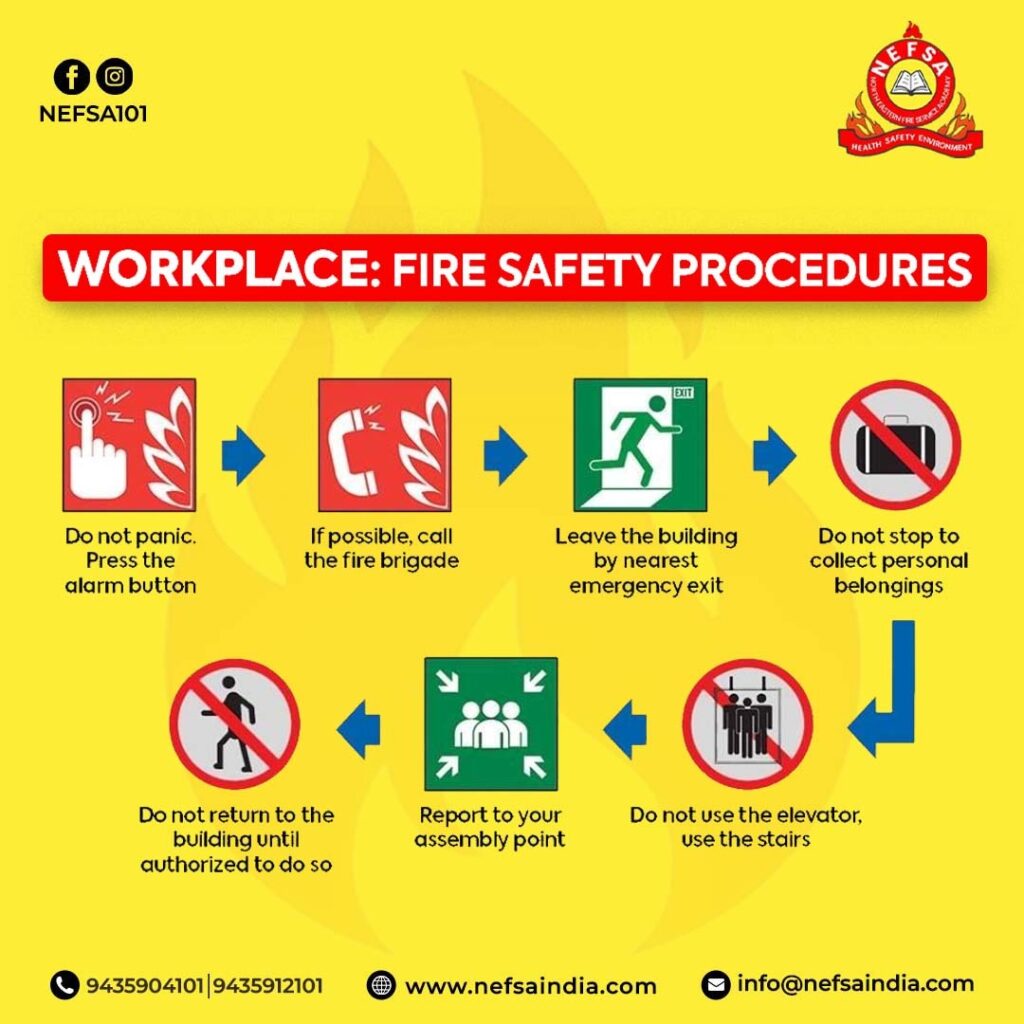Oil refineries are important establishments that transform crude oil into a variety of useful goods. Due to the presence of
combustible materials, high temperatures, and complex activities, they also provide substantial fire hazards. Understanding fire
safety at oil refineries is crucial for NEFSA (North East Fire and Safety Academy) students in Dibrugarh, North East. In the
context of oil refineries, this blog addresses the significance of fire safety training for NEFSA students, highlighting the steps
used to ensure safety in these complex industrial settings.
-
Understanding the Fire Hazards in Oil Refineries:
Because they work with flammable materials, oil refineries are prone to fire accidents. The emphasis of NEFSA’s specialised training is on educating students about the particular fire risks connected to oil refineries, including as leaks, equipment breakdowns, flammable vapours, and storage of combustible liquids.
-
Fire Prevention and Risk Assessment:
To protect workers and property, oil refineries must take all necessary precautions to avoid fires. In order to reduce the risk of a fire, NEFSA students learn about practical fire prevention strategies, such as routine equipment maintenance, monitoring potential ignition sources, and enforcing stringent housekeeping standards.
-
Emergency Response and Fire Suppression:
In oil refineries, an immediate and well-planned emergency reaction is crucial in the case of a fire. With the help of NEFSA’s training, students can effectively control and put out fires by using firefighting tools, fire suppression systems, and emergency response procedures.
-
Hazardous Material Handling and Storage:
Hazardous materials are handled at oil refineries, which calls for appropriate handling and storage practises. When working with hazardous materials, NEFSA students are taught about proper storage techniques, chemical compatibility, and the value of personal protective equipment (PPE).
-
Fire Safety Regulations and Compliance:
For oil refineries, following fire safety rules is crucial. For the purpose of ensuring compliance with national, regional, and worldwide fire safety legislation, NEFSA students obtain an awareness of the pertinent safety standards and recommendations.
-
Fire Drills and Emergency Preparedness:
Regular fire drills and emergency preparedness drills are important, according to NEFSA. Students practise their firefighting techniques, evacuation protocols, and incident management techniques in simulated scenarios to make sure they are ready for actual crises.
-
Training in High-Risk Areas:
Storage tanks, pipes, and process units all provide a heightened danger of fire in oil refineries. In order to ensure their proficiency in managing complicated fire events, NEFSA students undergo specialised training for controlling fires in these crucial areas.
Conclusion:
Students in Dibrugarh, North East, are given the knowledge, abilities, and confidence necessary to assure safety in these intricate industrial settings through NEFSA’s fire safety training for oil refineries. NEFSA students play a crucial role in preserving lives, property, and the environment at oil refineries by comprehending the distinct fire hazards, putting preventive measures into practise, and developing their emergency response abilities. This helps to make the oil refining business safer and more productive. To join our academy click www.nefsaindia.com







